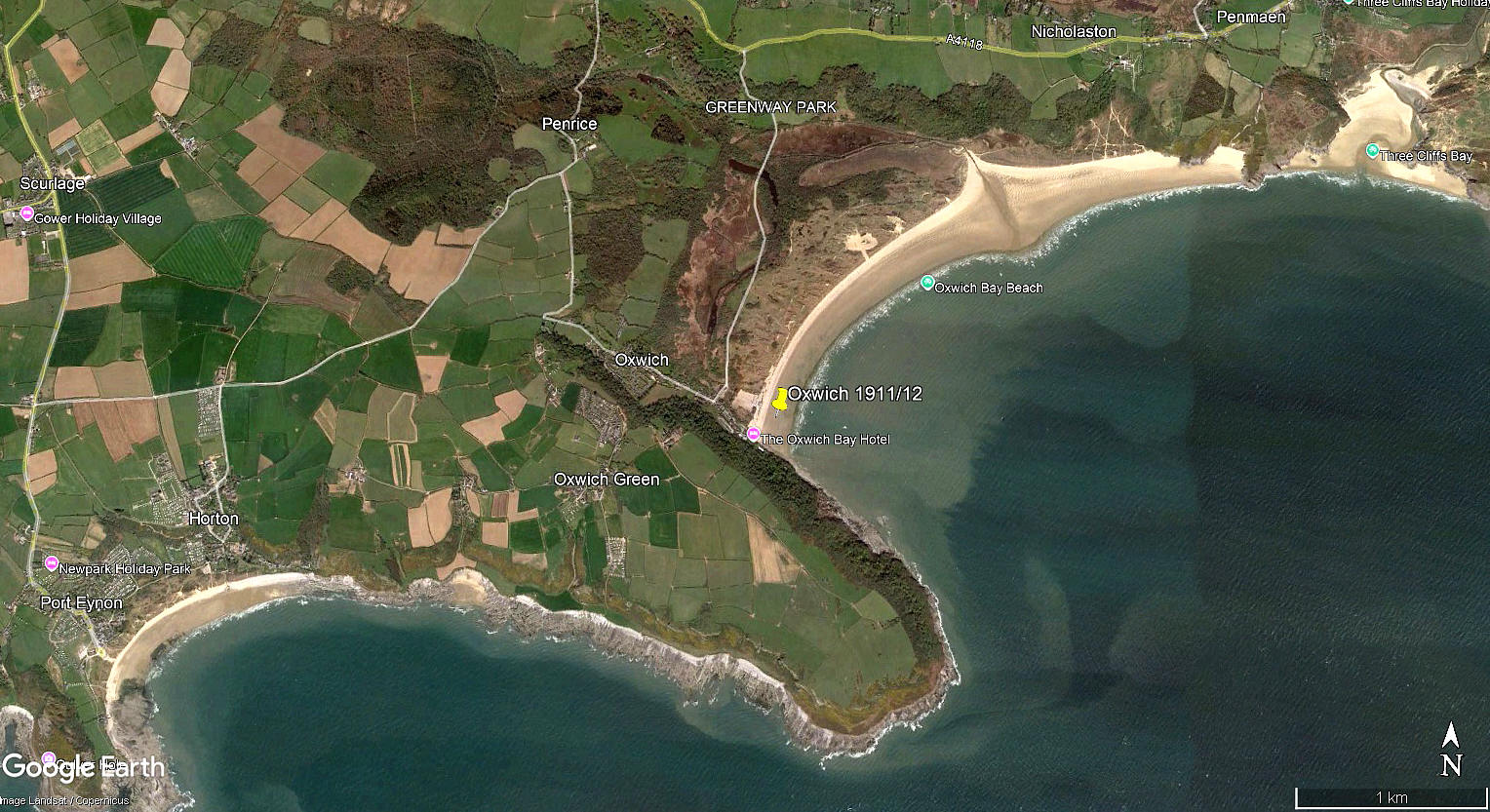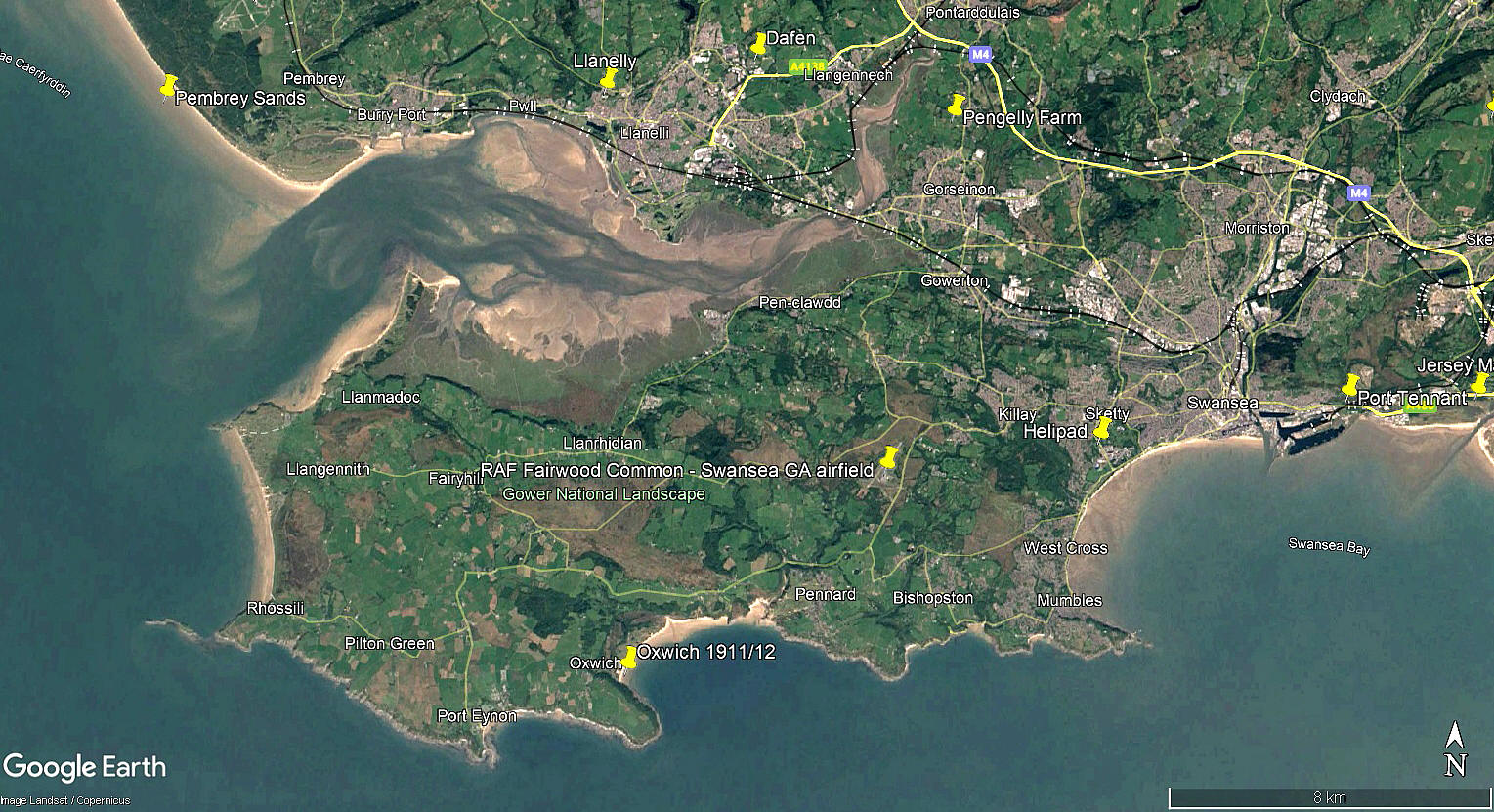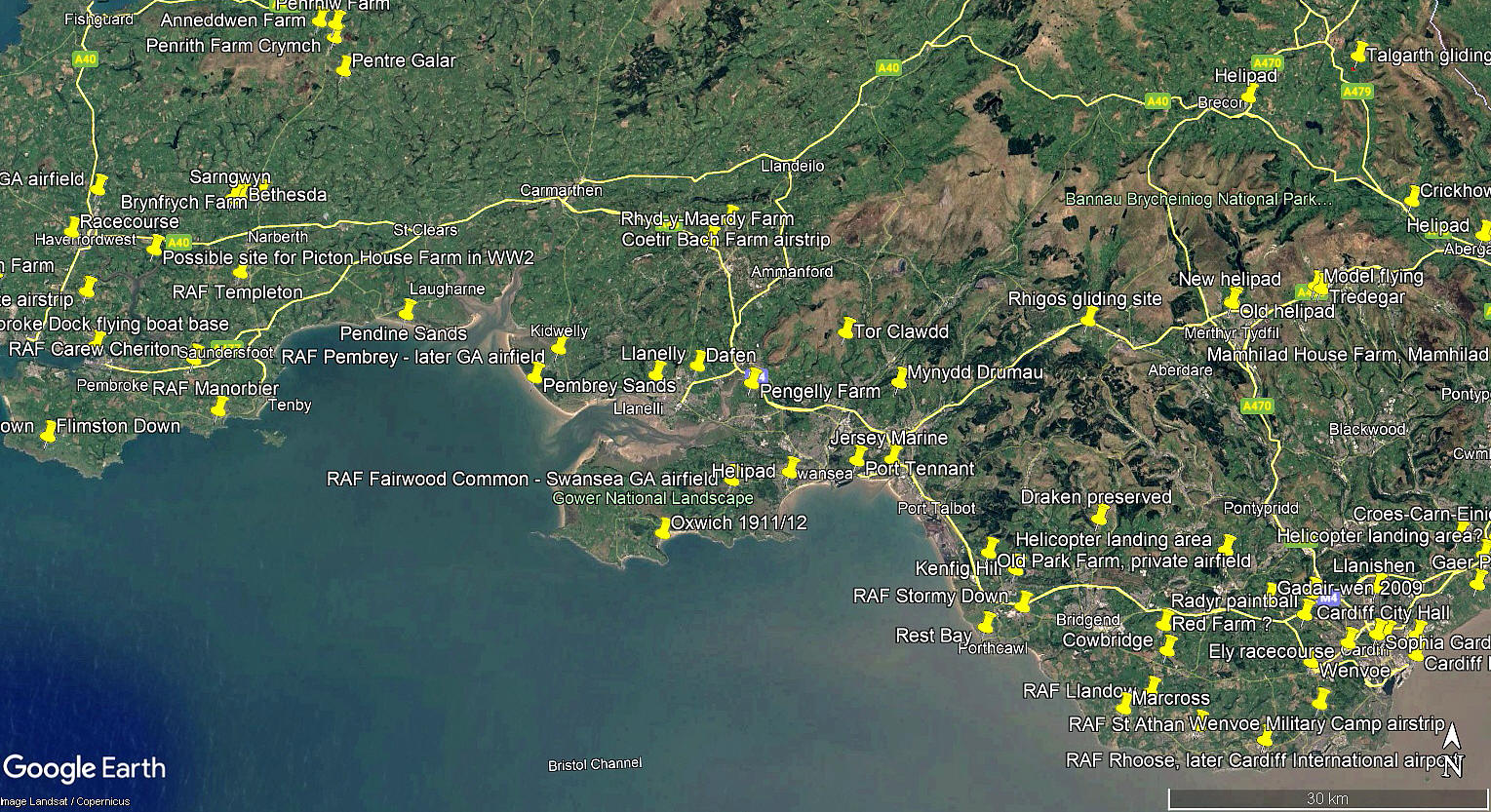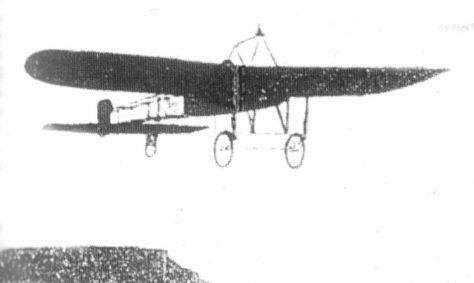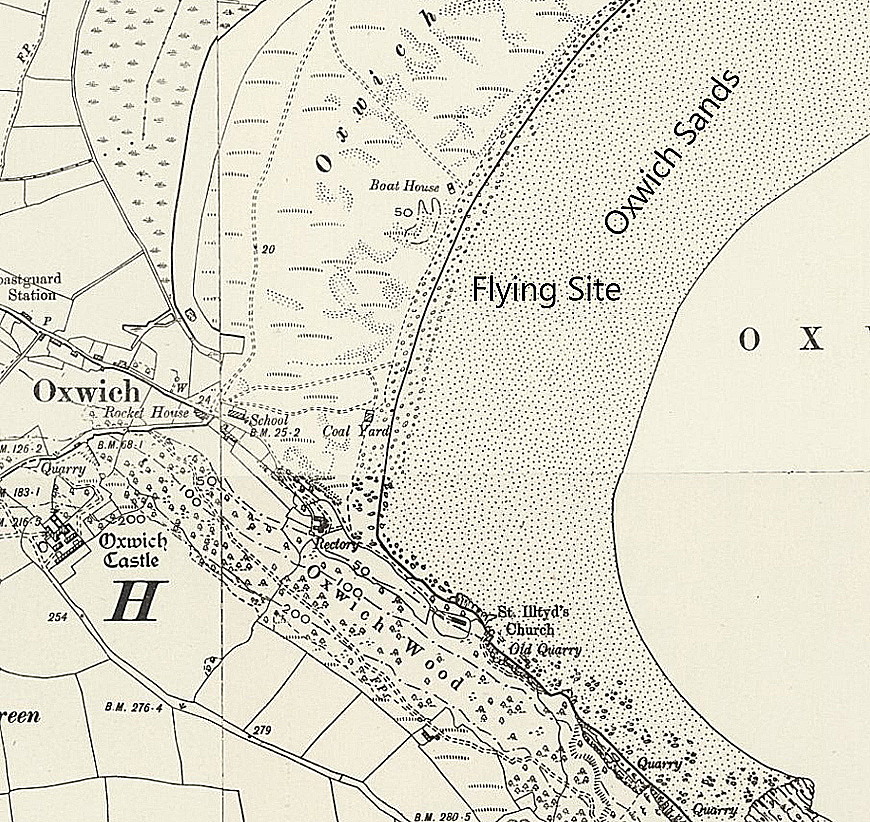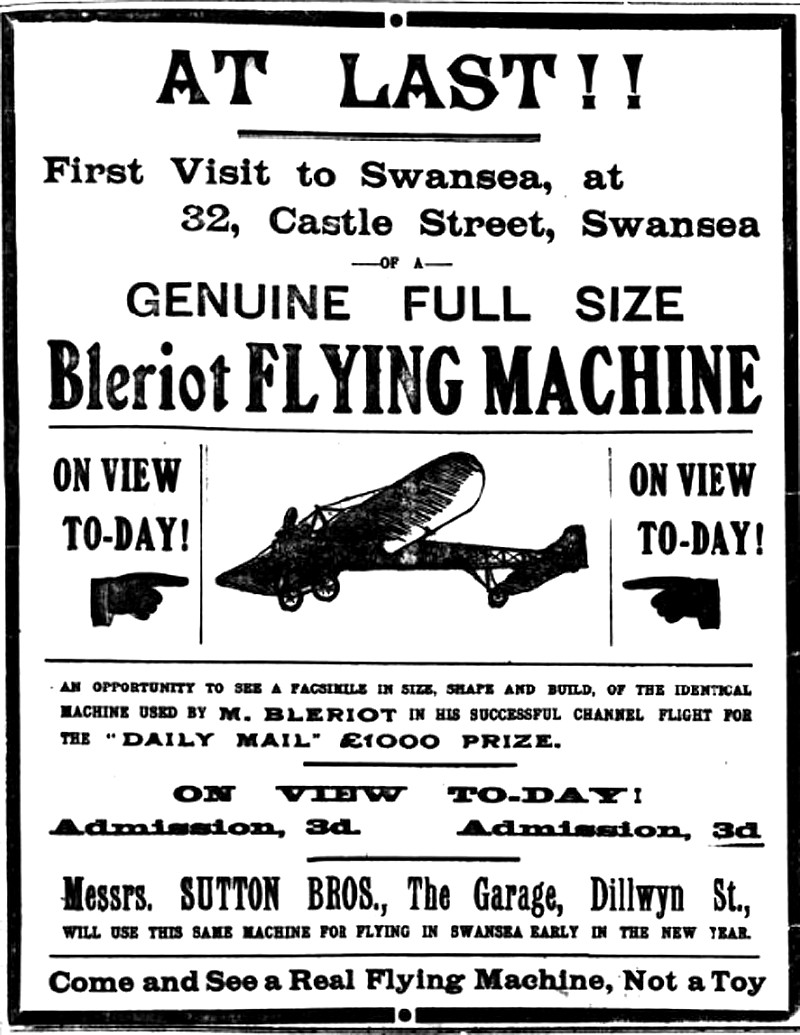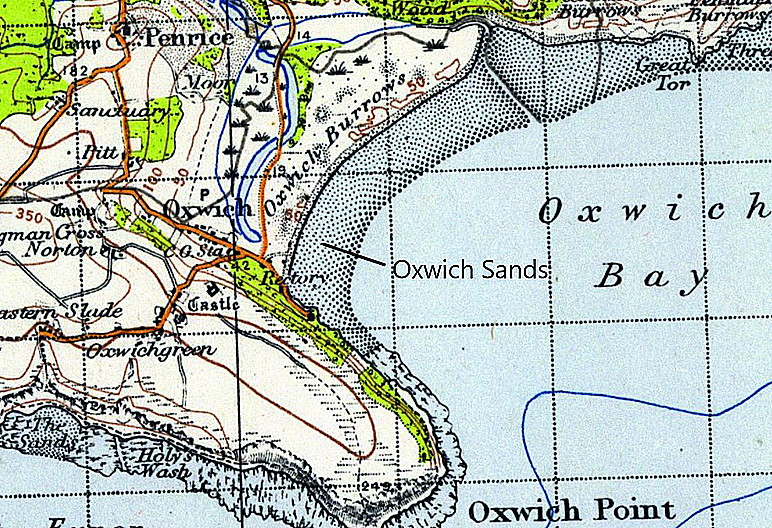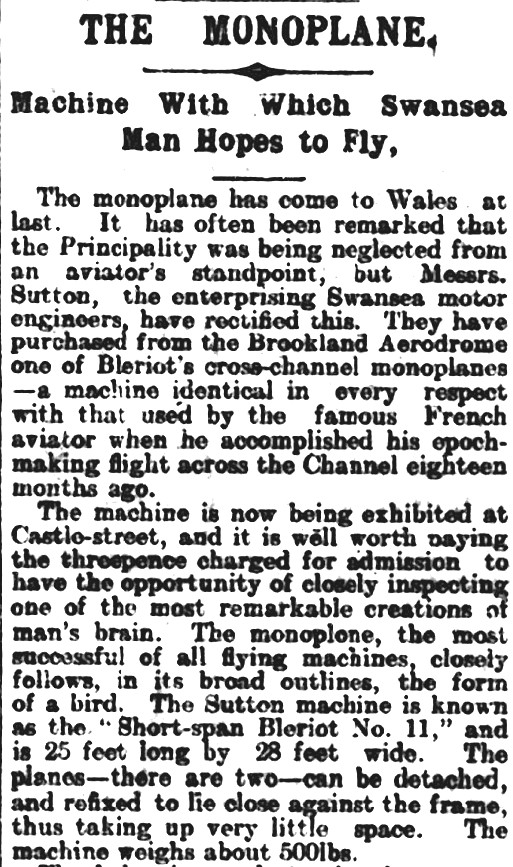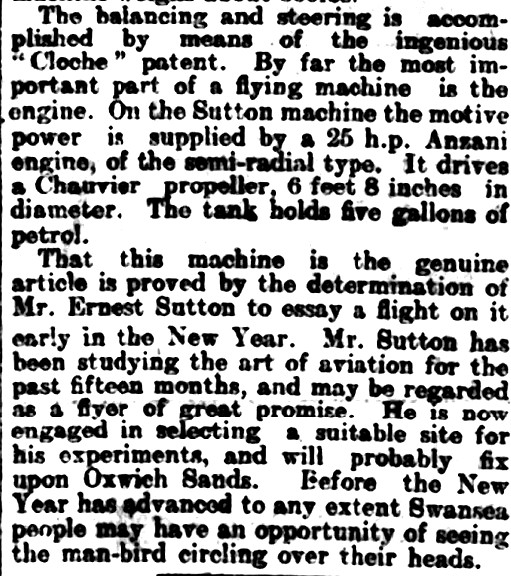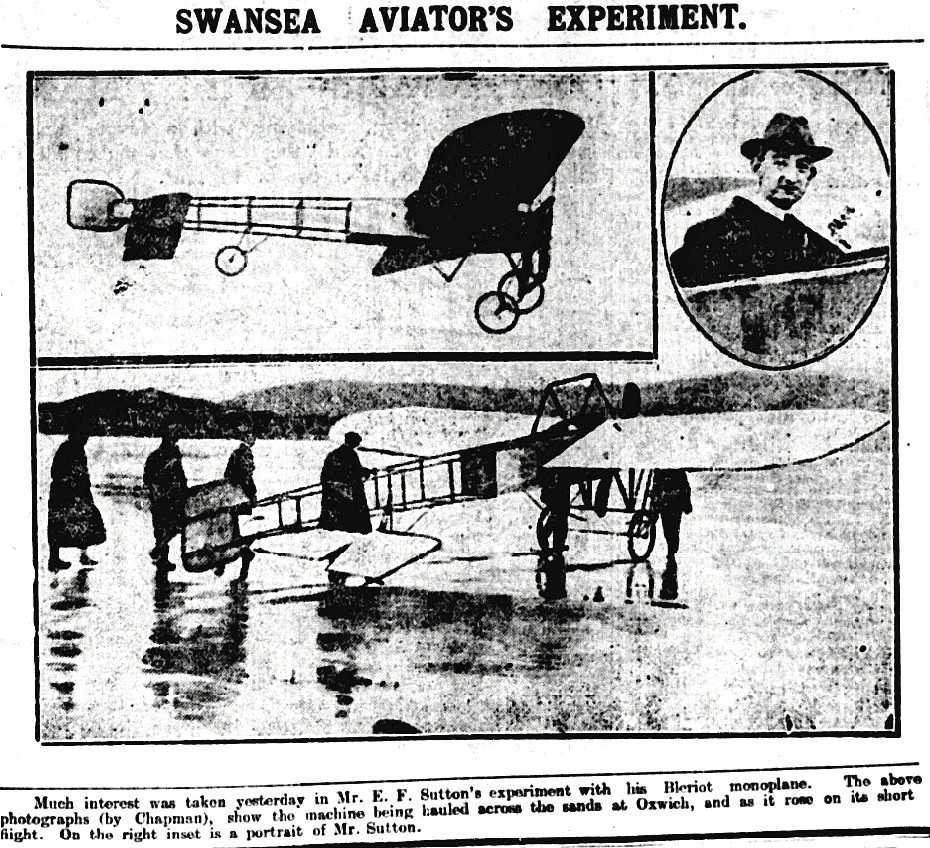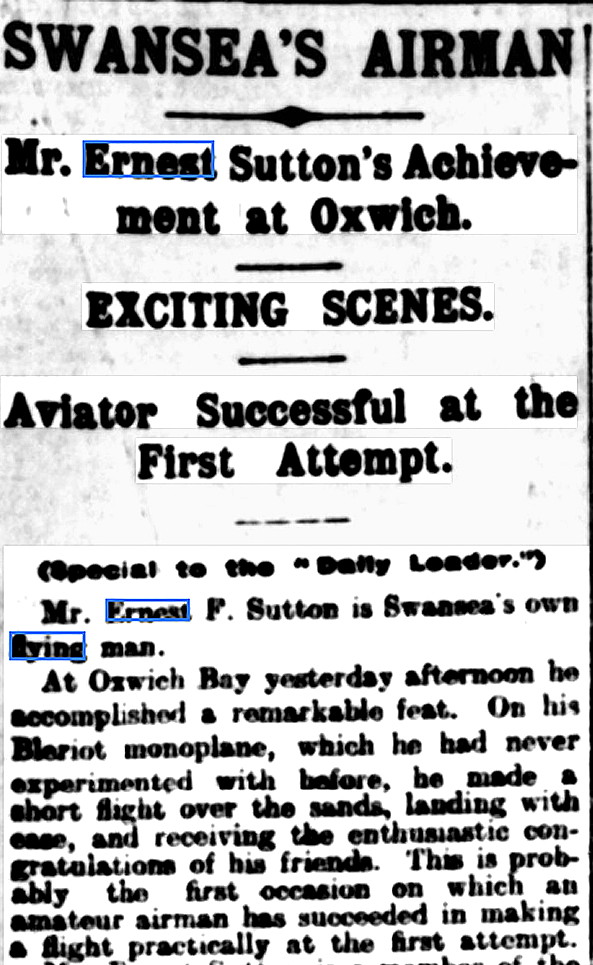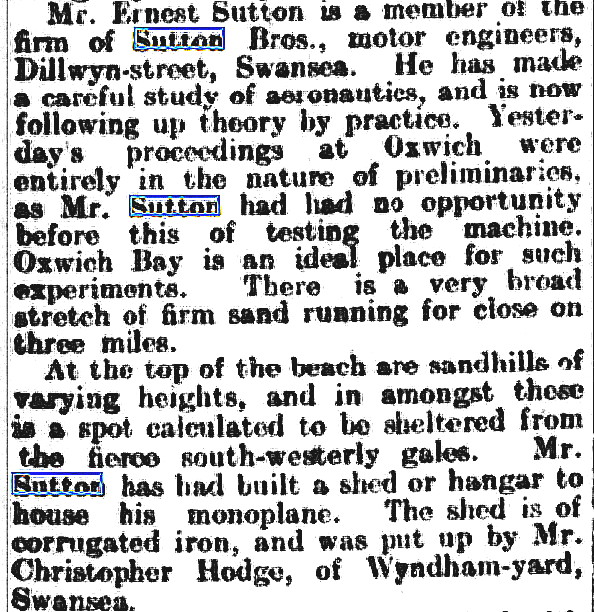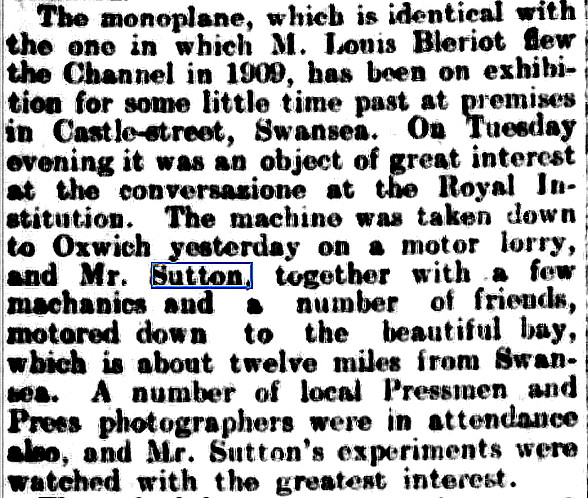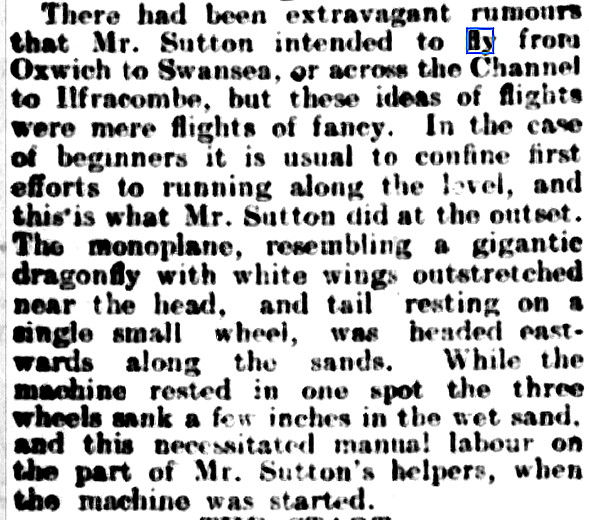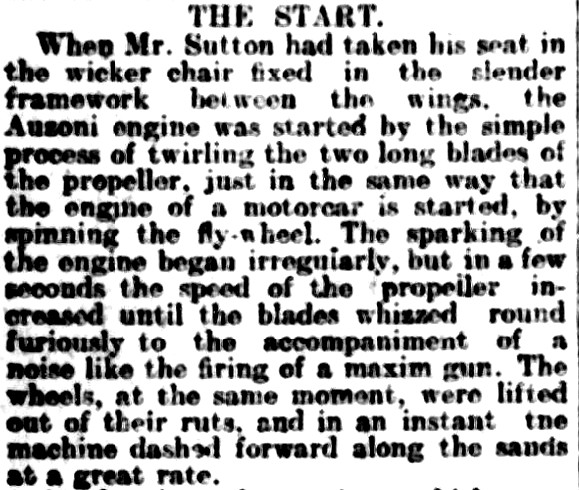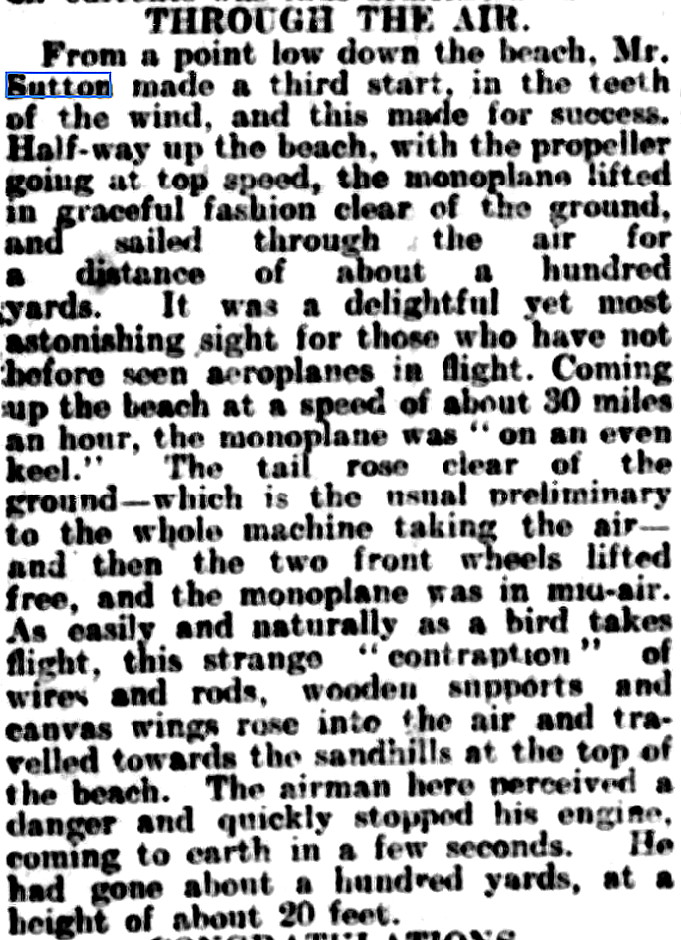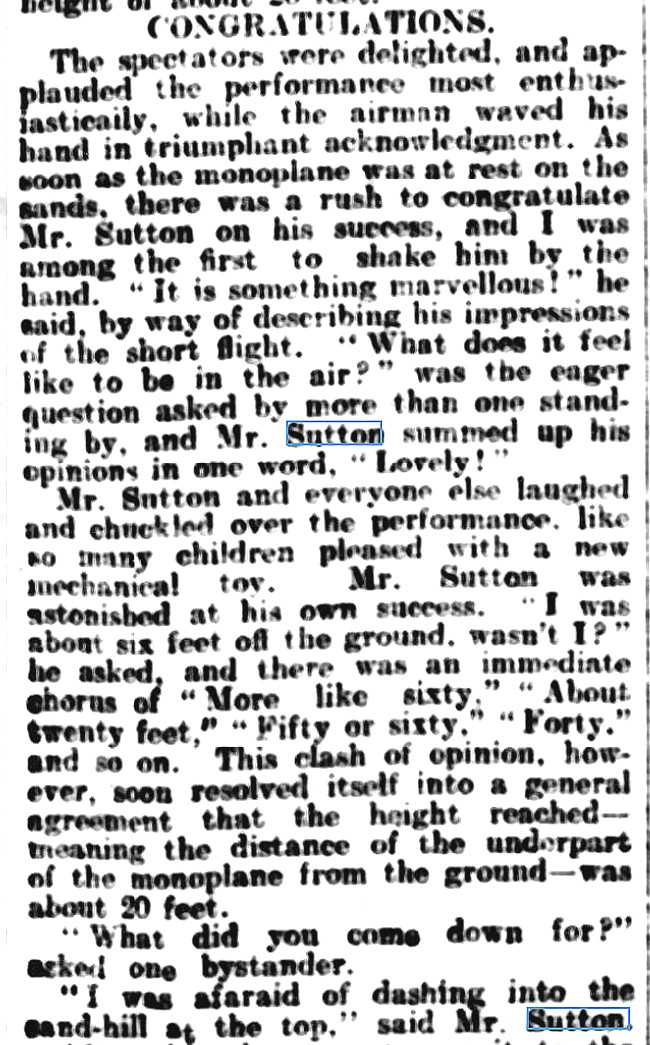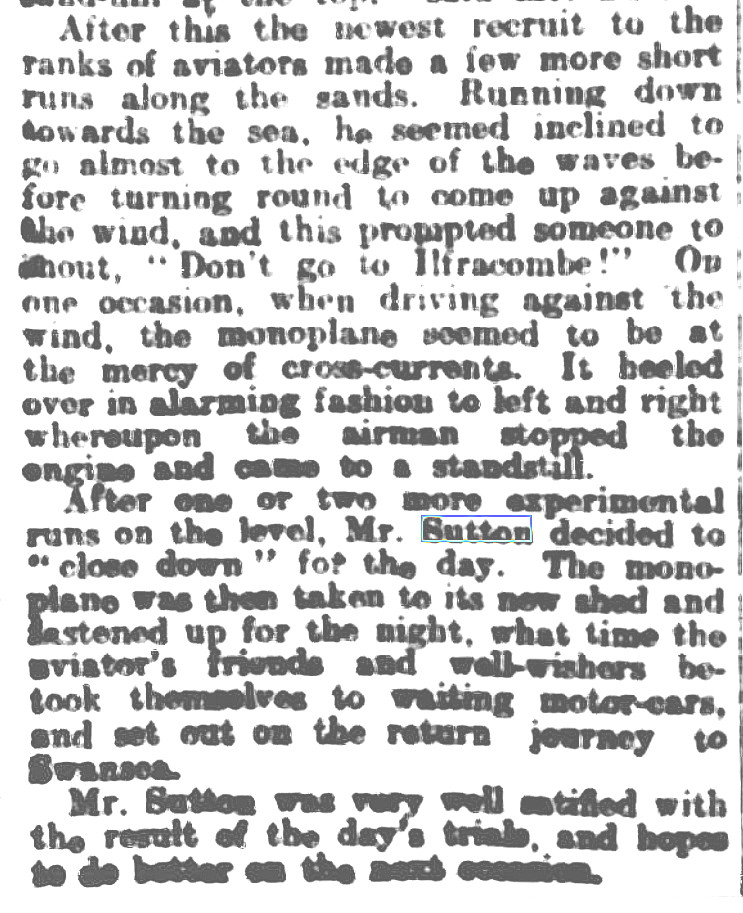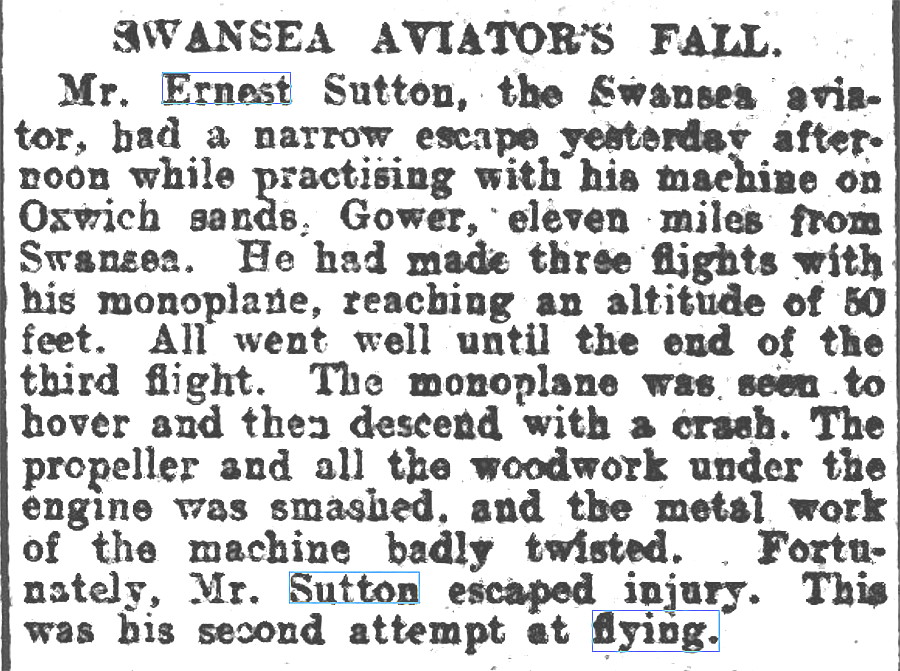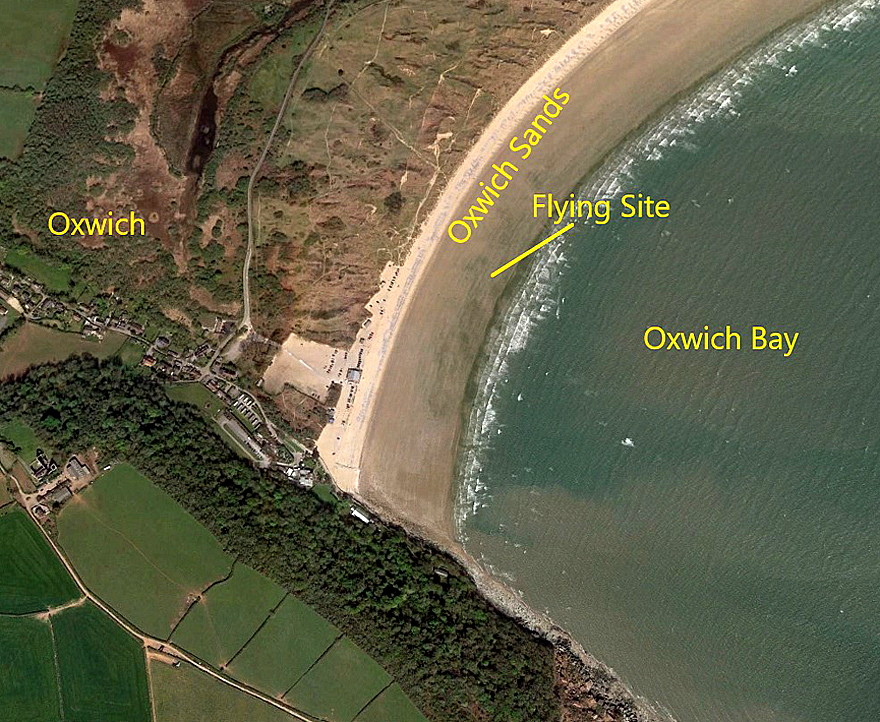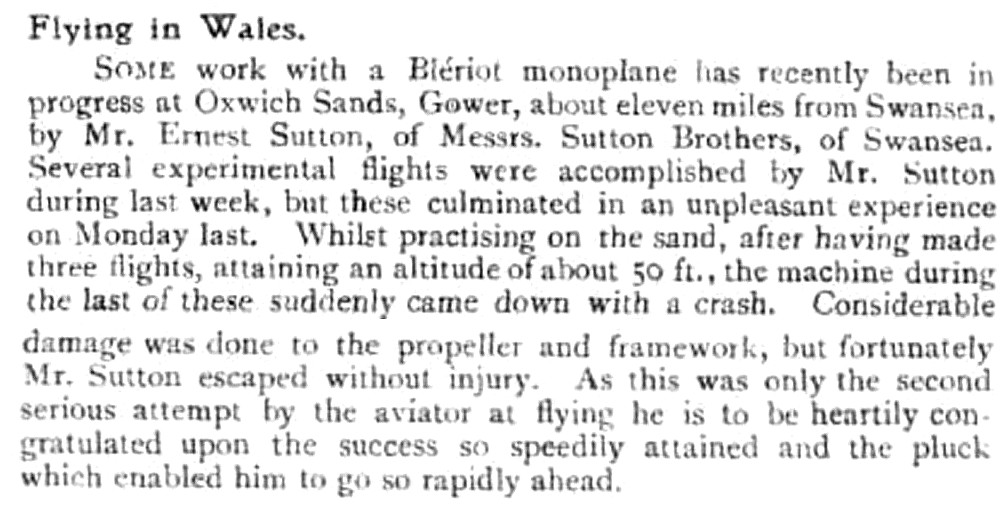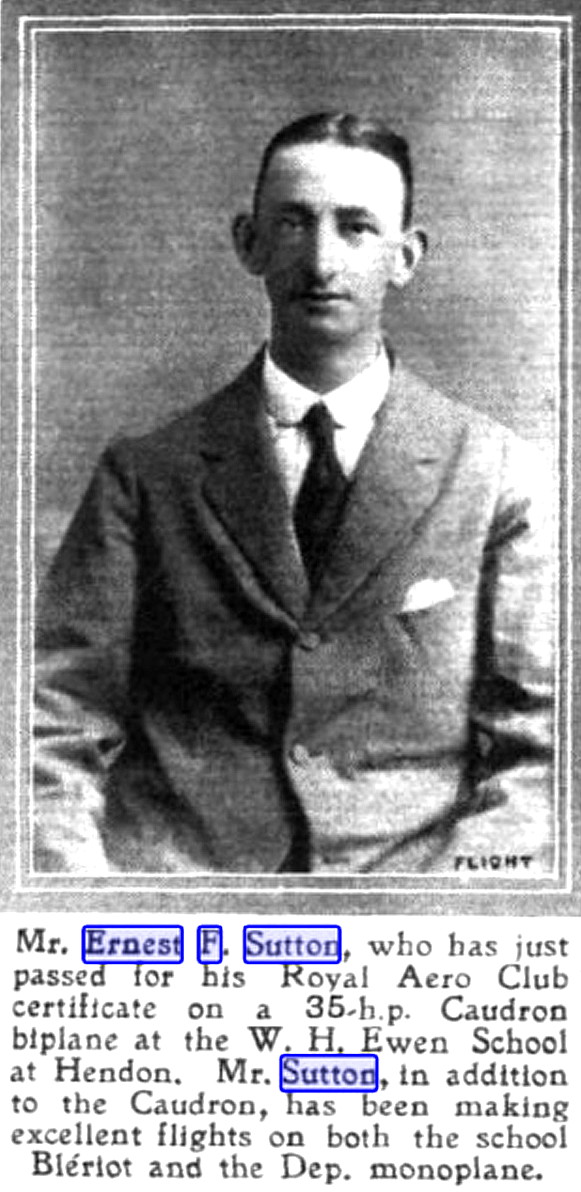Oxwich Sands
OXWICH SANDS: Early flying site
The local view was obtained from Google Earth ©. The local area and area views are from my Google Earth © derived database.
Operated by: Mr Ernest Frank Sutton
Location: At the W end of Oxwich Bay beach, just E of Oxwich village on the Gower Peninsular, roughly 10nm SW of Swansea city centre
Period of operation: January 1911 until March 1912
A MOST EXTRAORDINARY COINCIDENCE
In compiling this 'Guide' I have had so much help over the years. In this case two people stand out who have now become great friends - Mr Graham Frost and Mr Mike Holder, as anybody looking at this 'Guide' will soon realise. My role as editor of the 'Guide' generally being something akin to a bi--valve mollusc. Sifting and sorting with the tides of history. So, imagine my surprise when, in a fairly short space of time, they both came up with information about OXWICH SANDS, from entirely different sources.
THE MR GRAHAM FROST CONTRIBUTION
The photo of Mr Ernest Sutton on his Blériot in 1911 is courtesy of Glamorgan Aviation.
We have Mr Graham Frost, a great friend of this 'Guide', to thank for providing the link to this information, which is: History and archive of the gateway to Gower. A timeline of aviation in the Swansea area before the 2nd World War.
The story goes that Mr Sutton purchased a Blériot XI in 1910 and initially it was on display in his garage whilst he erected a hangar at the west end of Oxwich Bay beach. That complete he decided to teach himself to fly! On the 19th January he took-off and flew for about 100 yards. This being claimed as the first recorded flight in South Wales, but I think this is probably incorrect? Rather similar to the Wright brothers in 1903 it would seem, strictly speaking a 'hop' and still in ground effect.
Airborne yes, but not a flight. This being when a machine, as aeroplanes were usually called in those days, is controlled through all three axis. Climbing, turning and descending, just like a first solo flight these days. However, it appears he did manage a flight and eventually stayed aloft for over seven minutes climbing up to around 400ft including turns. Then in March 1912, during a storm, the hangar collapsed destroying the Blériot inside.
A MICHAEL T HOLDER GALLERY
Mike Holder, typically, has done his own research into these events, and has found quite a lot of additional information from press reports, plus providing maps etc. The early flight experiments Mr Ernest Sutton conducted in those early years clearly attracted a lot of attention in the press, not just locally.
The advert was placed in the Cambria Daily Leader on the 23rd December 1910.
Clearly the people in the Cambria Daily Leader were becoming very interested, if not excited, about this turn of events, and published this account on the 19th December 1910.
THE CAMBRIA DAILY LEADER 'GOES TO TOWN' ON THIS SUBJECT
This article in the Cambria Daily Leader was published on the 20th January 1911.
AND YES: EVEN MORE
Article Three: The news of Mr Suttons flying attempts had even reached the Hartlepool Northern Daily Mail who published this report on the 24th January 1911.
Being a monthly magazine, Flight lagged behind, their account being published on the 28th January 1911.
LASTLY BUT CERTAINLY NOT LEAST
This photo and caption was published in Flight magazine on the 21st September 1912. So, it seems that Mr Sutton eventually decided that, rather than trying to teach himself to fly, he then thought that going to a reputable flying school was a better option. It appears that he decided to join the Army in WW1, becoming an Acting Bombadier with the Royal Horse Artillery. He died, probably killed (?) on the 17th July 1917, and was buried, quite fittingly in the Aeroplane Cemetery at West-Vlaanderen in Belgium.
We'd love to hear from you, so please scroll down to leave a comment!
Leave a comment ...
Copyright (c) UK Airfield Guide















